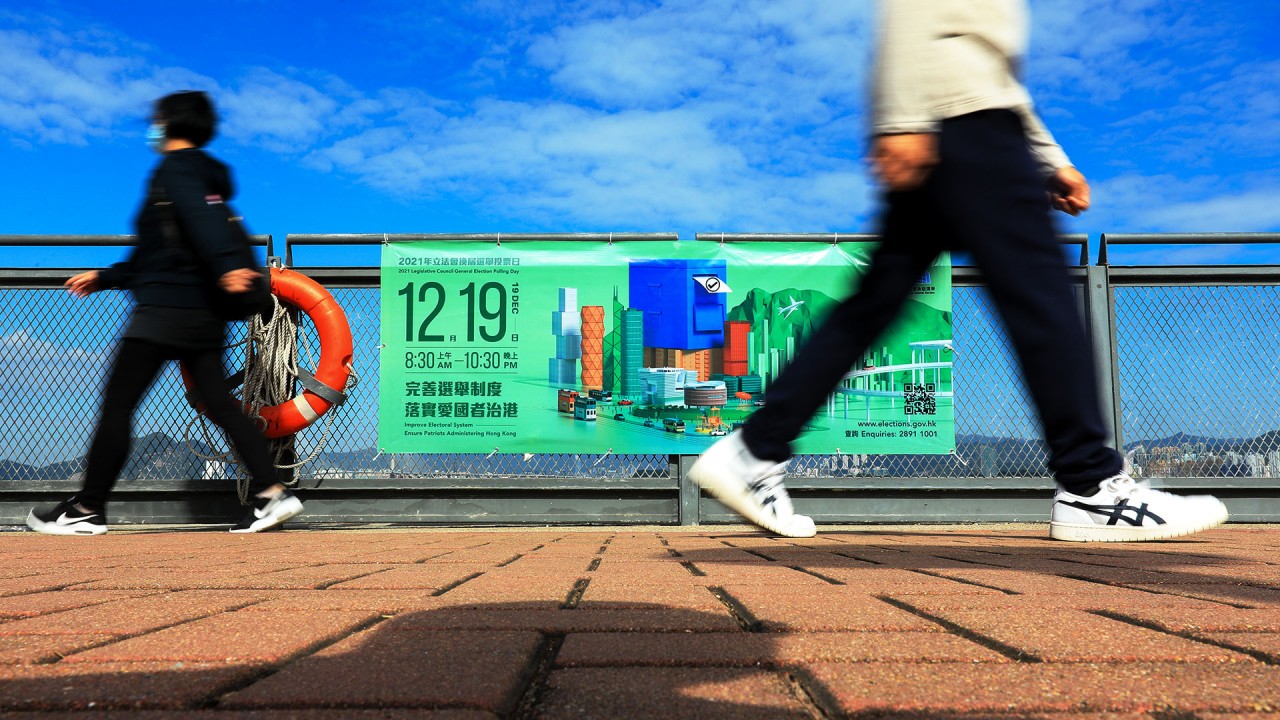
Flawed Legislative Council election still the best way to get Hong Kong back on track
- It is understandable that people are sceptical and worried about how they will be governed
- While the election had its imperfections, the promise of better political discourse and a sense of normalcy at least provide a silver lining
As I approached my polling station to vote on Sunday morning, I was taken aback by the presence of at least a dozen police milling around the entrance. Some were clad in bulletproof vests.
My sensitivity to the unexpected police presence at the polling station was symptomatic of the paranoia afflicting Hong Kong these days. Recent turmoil has seen the populace, along with much of the world’s media, looking for sinister meaning in every pronouncement and action. This weekend’s election was but the most recent event to draw the spotlight.
This election, despite its imperfections, was nevertheless the best opportunity in a long time to move forward. It was an opportunity for Hong Kong and its people to get on with their disrupted lives, get beyond the poisonous politics of recent years and to get pressing social and economic issues moved up the agenda.
An Election Committee constituency of about 1,500 Beijing-leaning loyalists was charged with electing 40 seats. That is twice as many seats as the millions of people in the geographical voting constituencies could elect.
The election also brought with it some faint whiffs of what someday could become renewed, more constructive political discourse. Many candidates appeared to make a genuine effort to distinguish their policy positions from one another. Some openly criticised government positions.

Beijing at least appears to want some discourse. Nelson Wong Sing-chi, a former Democratic Party member, said he was encouraged by pro-Beijing forces to pursue office. “I am absolutely not their cup of tea, but they also want me to run so there will be some other voices,” he said.
When the votes were tallied, the candidate I voted for won. Only time will tell if they will be effective in advancing the policies they promoted in their election manifesto. I am optimistic, however, that their voice, however faint, will join others in a newly formed, functional legislature that can make progress on issues of importance to the lives of the people of Hong Kong.
Pressure’s on Hong Kong patriots in the new political landscape
Chief Executive Carrie Lam Cheng Yuet-ngor said she hoped Hong Kong could get beyond its internal quarrels in her New Year’s message in January. She said, “That’s why for 2021, my biggest hope is for society to have harmony. So that the SAR government, and other public bodies, have more room to do concrete things for Hong Kong.”
The chief executive has got her wish with this election, and a bona fide patriot got my vote. Now, over to you.
Robin Hibberd was an executive vice-president with a large Canadian-based international bank until 2015 and is a former president of the Canadian Chamber of Commerce in Hong Kong


